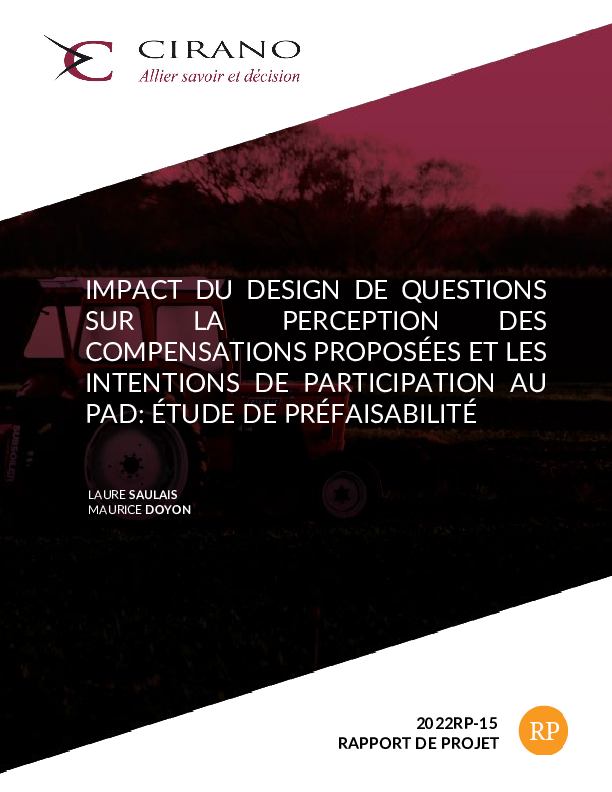Impact du design de questions sur la perception des compensations proposées et les intentions de participation au PAD: étude de préfaisabilité
The Quebec government's sustainable agriculture plan—Plan d’agriculture durable (PAD)—offers farm businesses a range of opportunities to accelerate the adoption of agri-environmental best practices by 2030. Rewards are expected to be offered to compensate for the costs incurred as a result of implementing certain practices.
This study uses the principles of behavioural economics and experimental economics techniques to identify behavioural levers for the acceptance and adherence of farm businesses to certain practices proposed by the PAD.
Based on the analysis of data provided by the Centre d'études sur les coûts de production en agriculture (CECPA) collected from 489 respondents, the authors conclude that:
- The way information is presented to farmers has an impact on their perception of the amount of compensation presented to them.
- Presenting information as an incentive or benefit is preferable to presenting information as a cost offset.
- Adding a preamble to the compensation offer that recognizes the efforts already made by Quebec farms and the level of challenge to improve the environmental performance of their business creates a negative emotion, thus reducing the likelihood that respondents will accept a given level of compensation.




